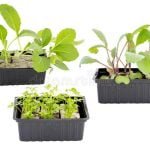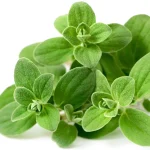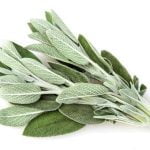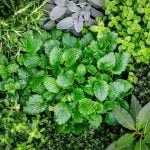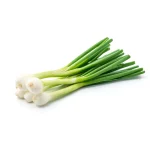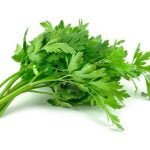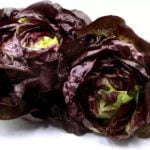Showing 637–648 of 2331 resultsSorted by popularity

Rose Rooibos 5lt
R195.00Add to cartRose Rooibos 5lt
Full Sun
Afternoon Sun
Moderate Watering
Monthly Feeding
Prune in WinterFairy Tale roses, are a popular class of roses known for their beautiful and enchanting flowers.
These roses are hybrid tea roses that have been specifically bred for their large, fully double blooms, vibrant colors, and strong fragrance.Appearance
Fairytale roses typically have large, high-centered flowers with numerous petals.
The blooms can be single or double and come in a wide range of colors, including shades of pink, red, peach, and yellow.
The petals often exhibit a slightly ruffled or wavy appearance, adding to their charm and allure.Growth habit
Fairytale roses are typically compact shrubs with a moderate height, making them suitable for smaller gardens or containers.
They usually have an upright growth habit and produce an abundance of blooms throughout the blooming season.Fragrance
Many Fairytale roses have a delightful fragrance, adding an extra sensory dimension to their appeal.
The scent can range from mild and sweet to rich and intense, depending on the specific variety.Disease resistance
One notable characteristic of Fairytale roses is their often excellent disease resistance.
Breeders have focused on developing varieties that are more resistant to common rose diseases, such as black spot and powdery mildew.
This makes Fairytale roses a relatively low-maintenance choice for gardeners.Uses
Fairytale roses are versatile and can be used in various garden settings. They are often planted as individual specimens, in groups or borders, or even in containers. Their compact size and prolific blooming make them suitable for smaller gardens, balconies, or patio spaces. Fairytale roses are also popular choices for cut flower arrangements, adding a touch of elegance and beauty to indoor floral displays.Varieties
There are several popular varieties of Fairytale roses available, each with its own unique color and characteristics.
Each variety may differ in terms of color, bloom form, size, and fragrance.Fairytale roses bring a touch of magic and beauty to gardens with their captivating blooms and delightful fragrance. Their compact size, disease resistance, and abundant flowering make them a popular choice among gardeners and rose enthusiasts alike.

Rose Pooh Bear 5lt
R195.00Add to cartRose Pooh Bear 5lt
Full Sun
Afternoon Sun
Moderate Watering
Monthly Feeding
Prune in WinterFairy Tale roses, are a popular class of roses known for their beautiful and enchanting flowers.
These roses are hybrid tea roses that have been specifically bred for their large, fully double blooms, vibrant colors, and strong fragrance.Appearance
Fairytale roses typically have large, high-centered flowers with numerous petals.
The blooms can be single or double and come in a wide range of colors, including shades of pink, red, peach, and yellow.
The petals often exhibit a slightly ruffled or wavy appearance, adding to their charm and allure.Growth habit
Fairytale roses are typically compact shrubs with a moderate height, making them suitable for smaller gardens or containers.
They usually have an upright growth habit and produce an abundance of blooms throughout the blooming season.Fragrance
Many Fairytale roses have a delightful fragrance, adding an extra sensory dimension to their appeal.
The scent can range from mild and sweet to rich and intense, depending on the specific variety.Disease resistance
One notable characteristic of Fairytale roses is their often excellent disease resistance.
Breeders have focused on developing varieties that are more resistant to common rose diseases, such as black spot and powdery mildew.
This makes Fairytale roses a relatively low-maintenance choice for gardeners.Uses
Fairytale roses are versatile and can be used in various garden settings. They are often planted as individual specimens, in groups or borders, or even in containers. Their compact size and prolific blooming make them suitable for smaller gardens, balconies, or patio spaces. Fairytale roses are also popular choices for cut flower arrangements, adding a touch of elegance and beauty to indoor floral displays.Varieties
There are several popular varieties of Fairytale roses available, each with its own unique color and characteristics.
Each variety may differ in terms of color, bloom form, size, and fragrance.Fairytale roses bring a touch of magic and beauty to gardens with their captivating blooms and delightful fragrance. Their compact size, disease resistance, and abundant flowering make them a popular choice among gardeners and rose enthusiasts alike.

Rose Liewe Heksie 5lt
R195.00Add to cartRose Liewe Heksie 5lt
Full Sun
Afternoon Sun
Moderate Watering
Monthly Feeding
Prune in WinterFairy Tale roses, are a popular class of roses known for their beautiful and enchanting flowers.
These roses are hybrid tea roses that have been specifically bred for their large, fully double blooms, vibrant colors, and strong fragrance.Appearance
Fairytale roses typically have large, high-centered flowers with numerous petals.
The blooms can be single or double and come in a wide range of colors, including shades of pink, red, peach, and yellow.
The petals often exhibit a slightly ruffled or wavy appearance, adding to their charm and allure.Growth habit
Fairytale roses are typically compact shrubs with a moderate height, making them suitable for smaller gardens or containers.
They usually have an upright growth habit and produce an abundance of blooms throughout the blooming season.Fragrance
Many Fairytale roses have a delightful fragrance, adding an extra sensory dimension to their appeal.
The scent can range from mild and sweet to rich and intense, depending on the specific variety.Disease resistance
One notable characteristic of Fairytale roses is their often excellent disease resistance.
Breeders have focused on developing varieties that are more resistant to common rose diseases, such as black spot and powdery mildew.
This makes Fairytale roses a relatively low-maintenance choice for gardeners.Uses
Fairytale roses are versatile and can be used in various garden settings. They are often planted as individual specimens, in groups or borders, or even in containers. Their compact size and prolific blooming make them suitable for smaller gardens, balconies, or patio spaces. Fairytale roses are also popular choices for cut flower arrangements, adding a touch of elegance and beauty to indoor floral displays.Varieties
There are several popular varieties of Fairytale roses available, each with its own unique color and characteristics.
Each variety may differ in terms of color, bloom form, size, and fragrance.Fairytale roses bring a touch of magic and beauty to gardens with their captivating blooms and delightful fragrance. Their compact size, disease resistance, and abundant flowering make them a popular choice among gardeners and rose enthusiasts alike.

Rose Foxy Lady LUDafrieasy 5lt
R195.00Add to cartRose Foxy Lady LUDafrieasy 5lt
Full Sun
Afternoon Sun
Moderate Watering
Monthly Feeding
Prune in WinterFairy Tale roses, are a popular class of roses known for their beautiful and enchanting flowers.
These roses are hybrid tea roses that have been specifically bred for their large, fully double blooms, vibrant colors, and strong fragrance.Appearance
Fairytale roses typically have large, high-centered flowers with numerous petals.
The blooms can be single or double and come in a wide range of colors, including shades of pink, red, peach, and yellow.
The petals often exhibit a slightly ruffled or wavy appearance, adding to their charm and allure.Growth habit
Fairytale roses are typically compact shrubs with a moderate height, making them suitable for smaller gardens or containers.
They usually have an upright growth habit and produce an abundance of blooms throughout the blooming season.Fragrance
Many Fairytale roses have a delightful fragrance, adding an extra sensory dimension to their appeal.
The scent can range from mild and sweet to rich and intense, depending on the specific variety.Disease resistance
One notable characteristic of Fairytale roses is their often excellent disease resistance.
Breeders have focused on developing varieties that are more resistant to common rose diseases, such as black spot and powdery mildew.
This makes Fairytale roses a relatively low-maintenance choice for gardeners.Uses
Fairytale roses are versatile and can be used in various garden settings. They are often planted as individual specimens, in groups or borders, or even in containers. Their compact size and prolific blooming make them suitable for smaller gardens, balconies, or patio spaces. Fairytale roses are also popular choices for cut flower arrangements, adding a touch of elegance and beauty to indoor floral displays.Varieties
There are several popular varieties of Fairytale roses available, each with its own unique color and characteristics.
Each variety may differ in terms of color, bloom form, size, and fragrance.Fairytale roses bring a touch of magic and beauty to gardens with their captivating blooms and delightful fragrance. Their compact size, disease resistance, and abundant flowering make them a popular choice among gardeners and rose enthusiasts alike.
- Sale!

Mixed Veg 6 Pack Tray
Original price was: R60.00.R49.99Current price is: R49.99.Add to cartMixed Veg 6 Pack Tray
Growing your own vegetables offers numerous benefits, both for your health and overall well-being. Here are some of the key advantages of cultivating your own vegetables:
1. Nutritional Value: Homegrown vegetables are incredibly fresh and packed with essential nutrients. They are harvested at their peak, ensuring optimal nutritional value. You have control over the cultivation methods, allowing you to avoid pesticides or other harmful chemicals.
2. Health and Wellness: Consuming homegrown vegetables promotes a healthier lifestyle. They are typically richer in vitamins, minerals, and antioxidants, which can boost your immune system, improve digestion, and lower the risk of chronic diseases such as heart disease and certain cancers.
3. Cost Savings: Growing your own vegetables can save you money in the long run. The initial investment in plants, soil, and tools may be modest, and the ongoing expenses are significantly lower compared to purchasing fresh produce from the market. Plus, you can grow a variety of vegetables at a fraction of the cost of buying them.
4. Taste and Flavour: Homegrown vegetables often have superior taste and flavour compared to store-bought produce. You can pick them at the peak of ripeness, allowing you to savour the true essence of each vegetable. The freshness and flavours of your homegrown vegetables can enhance your culinary experiences.
5. Environmental Sustainability: Cultivating your own vegetables promotes sustainable practices. By growing your food locally, you reduce the carbon footprint associated with long-distance transportation, packaging waste, and the use of harmful chemicals. Additionally, you can compost kitchen scraps and organic waste, minimizing landfill contributions.
6. Physical Activity and Stress Relief: Gardening is an excellent form of physical activity. It involves various tasks like digging, planting, weeding, and harvesting, which can provide exercise for your body. Engaging in gardening activities can also be therapeutic, reducing stress, anxiety, and promoting relaxation.
7. Educational and Skill Development: Growing your own vegetables offers a valuable learning experience for both children and adults. It allows you to understand the importance of sustainable agriculture, appreciate the effort involved in food production, and gain knowledge about plant biology and gardening techniques. It can also encourage a sense of responsibility and patience.
8. Food Security: Having your own vegetable garden contributes to food security. It provides you with a reliable source of fresh produce, reducing dependence on external suppliers. In times of emergencies or disruptions in the food supply chain, you can rely on the sustenance from your homegrown vegetables.
9. Aesthetics and Connection with Nature: Growing vegetables adds beauty to your surroundings. A well-maintained garden can enhance the aesthetics of your home and create a peaceful environment. It allows you to reconnect with nature, appreciate the seasons, and gain a sense of accomplishment.
Overall, growing your own vegetables offers a multitude of benefits, including improved nutrition, cost savings, environmental sustainability, physical activity, and a deeper connection with nature. It’s a rewarding endeavour that can positively impact your health, well-being, and overall quality of life.

- Sale!

Sage (LTD) 6 Pack Tray
Original price was: R60.00.R49.99Current price is: R49.99.Add to cartSage (LTD) 6 Pack Tray
- Sale!

Mix herbs 6 Pack Tray
Original price was: R60.00.R49.99Current price is: R49.99.Add to cartMix herbs 6 Pack Tray
- Sale!

Spring Onion 200 Plug Tray
Original price was: R400.00.R275.00Current price is: R275.00.Add to cartSpring Onion 200 Plug Tray
Growing your own vegetables offers numerous benefits, both for your health and overall well-being. Here are some of the key advantages of cultivating your own vegetables:
1. Nutritional Value: Homegrown vegetables are incredibly fresh and packed with essential nutrients. They are harvested at their peak, ensuring optimal nutritional value. You have control over the cultivation methods, allowing you to avoid pesticides or other harmful chemicals.
2. Health and Wellness: Consuming homegrown vegetables promotes a healthier lifestyle. They are typically richer in vitamins, minerals, and antioxidants, which can boost your immune system, improve digestion, and lower the risk of chronic diseases such as heart disease and certain cancers.
3. Cost Savings: Growing your own vegetables can save you money in the long run. The initial investment in plants, soil, and tools may be modest, and the ongoing expenses are significantly lower compared to purchasing fresh produce from the market. Plus, you can grow a variety of vegetables at a fraction of the cost of buying them.
4. Taste and Flavour: Homegrown vegetables often have superior taste and flavour compared to store-bought produce. You can pick them at the peak of ripeness, allowing you to savour the true essence of each vegetable. The freshness and flavours of your homegrown vegetables can enhance your culinary experiences.
5. Environmental Sustainability: Cultivating your own vegetables promotes sustainable practices. By growing your food locally, you reduce the carbon footprint associated with long-distance transportation, packaging waste, and the use of harmful chemicals. Additionally, you can compost kitchen scraps and organic waste, minimizing landfill contributions.
6. Physical Activity and Stress Relief: Gardening is an excellent form of physical activity. It involves various tasks like digging, planting, weeding, and harvesting, which can provide exercise for your body. Engaging in gardening activities can also be therapeutic, reducing stress, anxiety, and promoting relaxation.
7. Educational and Skill Development: Growing your own vegetables offers a valuable learning experience for both children and adults. It allows you to understand the importance of sustainable agriculture, appreciate the effort involved in food production, and gain knowledge about plant biology and gardening techniques. It can also encourage a sense of responsibility and patience.
8. Food Security: Having your own vegetable garden contributes to food security. It provides you with a reliable source of fresh produce, reducing dependence on external suppliers. In times of emergencies or disruptions in the food supply chain, you can rely on the sustenance from your homegrown vegetables.
9. Aesthetics and Connection with Nature: Growing vegetables adds beauty to your surroundings. A well-maintained garden can enhance the aesthetics of your home and create a peaceful environment. It allows you to reconnect with nature, appreciate the seasons, and gain a sense of accomplishment.
Overall, growing your own vegetables offers a multitude of benefits, including improved nutrition, cost savings, environmental sustainability, physical activity, and a deeper connection with nature. It’s a rewarding endeavour that can positively impact your health, well-being, and overall quality of life.
- Sale!

Parsley 200 Plug Tray
Original price was: R400.00.R275.00Current price is: R275.00.Add to cartParsley 200 Plug Tray
Growing your own vegetables offers numerous benefits, both for your health and overall well-being. Here are some of the key advantages of cultivating your own vegetables:
1. Nutritional Value: Homegrown vegetables are incredibly fresh and packed with essential nutrients. They are harvested at their peak, ensuring optimal nutritional value. You have control over the cultivation methods, allowing you to avoid pesticides or other harmful chemicals.
2. Health and Wellness: Consuming homegrown vegetables promotes a healthier lifestyle. They are typically richer in vitamins, minerals, and antioxidants, which can boost your immune system, improve digestion, and lower the risk of chronic diseases such as heart disease and certain cancers.
3. Cost Savings: Growing your own vegetables can save you money in the long run. The initial investment in plants, soil, and tools may be modest, and the ongoing expenses are significantly lower compared to purchasing fresh produce from the market. Plus, you can grow a variety of vegetables at a fraction of the cost of buying them.
4. Taste and Flavour: Homegrown vegetables often have superior taste and flavour compared to store-bought produce. You can pick them at the peak of ripeness, allowing you to savour the true essence of each vegetable. The freshness and flavours of your homegrown vegetables can enhance your culinary experiences.
5. Environmental Sustainability: Cultivating your own vegetables promotes sustainable practices. By growing your food locally, you reduce the carbon footprint associated with long-distance transportation, packaging waste, and the use of harmful chemicals. Additionally, you can compost kitchen scraps and organic waste, minimizing landfill contributions.
6. Physical Activity and Stress Relief: Gardening is an excellent form of physical activity. It involves various tasks like digging, planting, weeding, and harvesting, which can provide exercise for your body. Engaging in gardening activities can also be therapeutic, reducing stress, anxiety, and promoting relaxation.
7. Educational and Skill Development: Growing your own vegetables offers a valuable learning experience for both children and adults. It allows you to understand the importance of sustainable agriculture, appreciate the effort involved in food production, and gain knowledge about plant biology and gardening techniques. It can also encourage a sense of responsibility and patience.
8. Food Security: Having your own vegetable garden contributes to food security. It provides you with a reliable source of fresh produce, reducing dependence on external suppliers. In times of emergencies or disruptions in the food supply chain, you can rely on the sustenance from your homegrown vegetables.
9. Aesthetics and Connection with Nature: Growing vegetables adds beauty to your surroundings. A well-maintained garden can enhance the aesthetics of your home and create a peaceful environment. It allows you to reconnect with nature, appreciate the seasons, and gain a sense of accomplishment.
Overall, growing your own vegetables offers a multitude of benefits, including improved nutrition, cost savings, environmental sustainability, physical activity, and a deeper connection with nature. It’s a rewarding endeavour that can positively impact your health, well-being, and overall quality of life.

Dryopteris Erythrosora 12cm Pot
R120.00Add to cartDryopteris Erythrosora 12cm Pot
Common Name: Autumn FernBright Indirect Light
Moderate Watering
Monthly Feeding- Sale!

Lettuce Butter Red 6 pack
Original price was: R60.00.R49.99Current price is: R49.99.Add to cartLettuce Butter Red 6 pack
Growing your own vegetables offers numerous benefits, both for your health and overall well-being. Here are some of the key advantages of cultivating your own vegetables:
1. Nutritional Value: Homegrown vegetables are incredibly fresh and packed with essential nutrients. They are harvested at their peak, ensuring optimal nutritional value. You have control over the cultivation methods, allowing you to avoid pesticides or other harmful chemicals.
2. Health and Wellness: Consuming homegrown vegetables promotes a healthier lifestyle. They are typically richer in vitamins, minerals, and antioxidants, which can boost your immune system, improve digestion, and lower the risk of chronic diseases such as heart disease and certain cancers.
3. Cost Savings: Growing your own vegetables can save you money in the long run. The initial investment in plants, soil, and tools may be modest, and the ongoing expenses are significantly lower compared to purchasing fresh produce from the market. Plus, you can grow a variety of vegetables at a fraction of the cost of buying them.
4. Taste and Flavour: Homegrown vegetables often have superior taste and flavour compared to store-bought produce. You can pick them at the peak of ripeness, allowing you to savour the true essence of each vegetable. The freshness and flavours of your homegrown vegetables can enhance your culinary experiences.
5. Environmental Sustainability: Cultivating your own vegetables promotes sustainable practices. By growing your food locally, you reduce the carbon footprint associated with long-distance transportation, packaging waste, and the use of harmful chemicals. Additionally, you can compost kitchen scraps and organic waste, minimizing landfill contributions.
6. Physical Activity and Stress Relief: Gardening is an excellent form of physical activity. It involves various tasks like digging, planting, weeding, and harvesting, which can provide exercise for your body. Engaging in gardening activities can also be therapeutic, reducing stress, anxiety, and promoting relaxation.
7. Educational and Skill Development: Growing your own vegetables offers a valuable learning experience for both children and adults. It allows you to understand the importance of sustainable agriculture, appreciate the effort involved in food production, and gain knowledge about plant biology and gardening techniques. It can also encourage a sense of responsibility and patience.
8. Food Security: Having your own vegetable garden contributes to food security. It provides you with a reliable source of fresh produce, reducing dependence on external suppliers. In times of emergencies or disruptions in the food supply chain, you can rely on the sustenance from your homegrown vegetables.
9. Aesthetics and Connection with Nature: Growing vegetables adds beauty to your surroundings. A well-maintained garden can enhance the aesthetics of your home and create a peaceful environment. It allows you to reconnect with nature, appreciate the seasons, and gain a sense of accomplishment.
Overall, growing your own vegetables offers a multitude of benefits, including improved nutrition, cost savings, environmental sustainability, physical activity, and a deeper connection with nature. It’s a rewarding endeavour that can positively impact your health, well-being, and overall quality of life.





